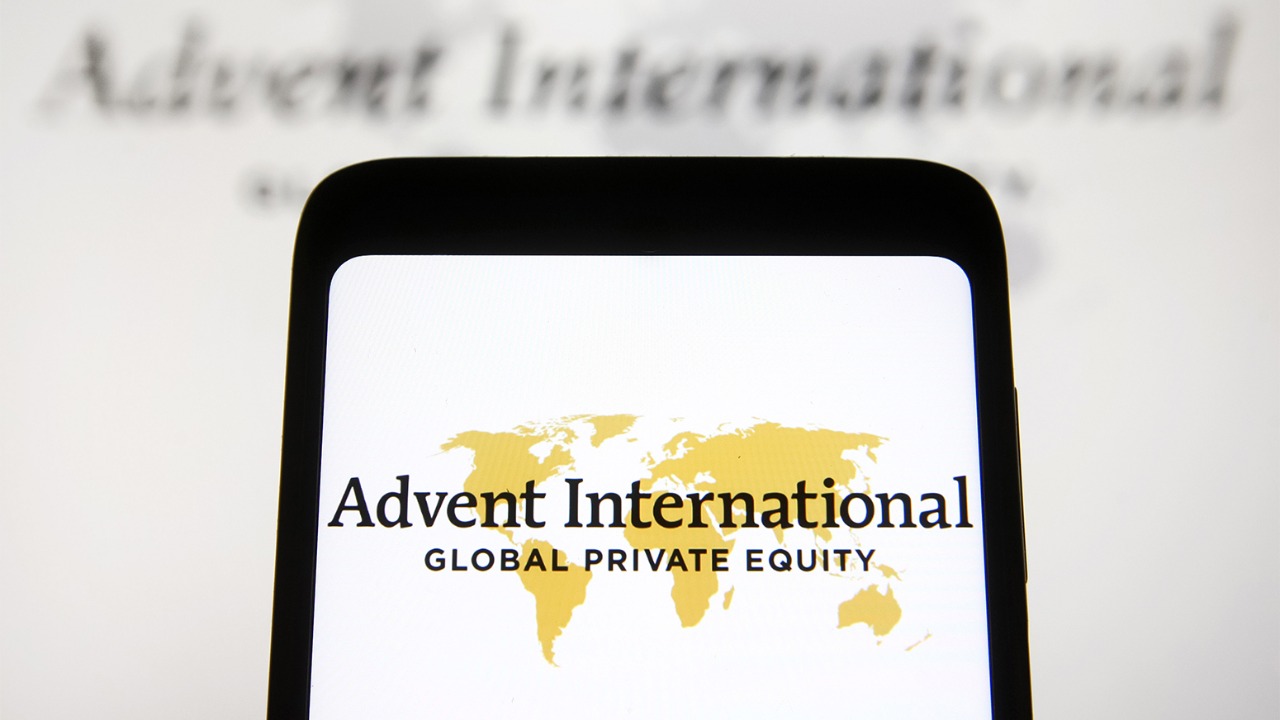Advent International’s Ambitious Investment Strategy For India Aims To Invest $5 to $10 Billion; India Continues To Dominate The Global Investment Market.
Advent International, a US-based private equity firm known for its involvement in major global acquisitions, is setting its sights on India for significant investment opportunities. The company has an impressive track record of successful leveraged buyouts and conglomerate carve-outs, including high-profile transactions like the acquisition of Thyssenkrupp's elevator business and Royal Bank of Scotland's payments business. Advent aims to deploy between $5 to $10 billion in India over the next five years. The move reiterates the firm's confidence in India's potential as one of the most attractive markets for global investment amidst evolving geopolitical dynamics.

Advent International aims to deploy between $5 to $10 billion in the country over the next five years, considering India to be one of the most promising markets for global investment opportunities, according to chairman David Mussafer.
The US-based private equity firm known for its involvement in major leveraged buyouts and conglomerate carve-outs, such as the €17.2-billion acquisition of Thyssenkrupp’s elevator business in 2020 and the €1.8 billion joint takeover of Royal Bank of Scotland’s payments business, Worldpay, together with co-investors, is planning this significant investment in India.
The firm has surpassed its previous targets and views India as even more appealing amidst recent geopolitical developments.
Initially, in 2019, Advent had committed to deploying at least 10% of its $17-billion fund in India; however, since then, the Advent India team has invested approximately $4.4 billion.

Globally, in May 2022, the firm raised $25 billion, marking it as the second-largest private equity fund ever.
Additionally, it possesses $4 billion in dry powder dedicated to a separate technology fund, its second, and has intensified its dealmaking activities worldwide.
In terms of investment scope, Advent’s interests are diverse, and in the past year alone, it allocated $7 billion towards new opportunities spanning cybersecurity to pharmaceuticals.
Notably, it also realized exits amounting to $8.4 billion, surpassing its previous five-year exit average of $5.7 billion.
Expressing heightened ambition, James Brocklebank, based in London and co-chair of Advent’s executive committee alongside Mussafer, stated their aspiration to invest billions in India over the next five years.

The India Story So Far
Since its establishment in 2009, Advent’s India office has completed a total of 17 investments, including 12 current portfolio entities and five exits, with an aggregate investment of approximately $5.8 billion across buyouts.
These investments include notable entities like Crompton Greaves, Eureka Forbes, Encora, DFM Foods, Suven Pharma, and Bharat Serums & Vaccine.
Additionally, the firm has supported banks, financial services companies such as Yes Bank and Aditya Birla Capital, fintech ventures like KreditBee, and has acquired a significant stake in Manjushree Technopack, a packaging company, among others.
India The Ideal Investment Destination
Brocklebank highlighted the factors that make India an appealing investment destination, including consistent GDP growth of 6 or 7% annually, a stable government, a dynamic demographic profile, a burgeoning population, and an expanding middle class.
He emphasized the significant potential for investment, especially given the limited financial penetration in the country.
Moreover, he noted the presence of a skilled workforce, particularly in the technology sector, which further enhances India’s attractiveness for investment across various sectors.
Mussafer expressed enthusiasm about the wide array of investment opportunities available in India, spanning consumer goods, healthcare, technology, industrial sectors, and financial services and their respective sub-sectors.
He noted that unlike in many other markets where investment opportunities may be more restricted, India offers a robust and diverse investment landscape across multiple sectors.
India’s role in facilitating global investment activities for the firm was also emphasized by Mussafer, citing the example of Encora, a global digital engineering services company with operations in India and the US.
Advent acquired a majority stake in Encora, stating how India’s capabilities contribute to unlocking global investment opportunities and integrating India into the firm’s global platform.

What About Valuations
Regarding concerns about expensive valuations in the Indian market hindering dealmaking activities, Mussafer dismissed such notions.
He argued that valuations should be evaluated relative to growth prospects and risk returns associated with investment opportunities. Despite the premium valuations observed in India’s equity markets, Mussafer emphasized the attractive growth prospects and the relative appeal of the market.
While acknowledging the booming capital market, Shweta Jalan, Advent’s India head, stated that the firm remains open to various exit options for its portfolio companies beyond just listing them publicly.
This flexibility ensures that Advent can explore the most suitable avenues for achieving liquidity for its investments in India.
“In certain publicly listed companies that we own, such as Yes Bank, Eureka Forbes, and Suven Pharma, the public markets serve as our exit route,” she stated.
“However, for many others, we will explore alternative exit strategies, including strategic sales, financial sponsor arrangements similar to our past experiences, or an initial public offering (IPO). Thus, it will be a balanced mix. We are cautious not to solely rely on temporary market buoyancy for all our exits.”
While there are reports indicating Advent’s intention to exit investments in Bharat Serum and Manjushree Technopack, Jalan refrained from discussing specific deals.
The Wide Net
Advent’s expertise spans various sectors globally, avoiding being categorized into specific investment types such as special situations, carve-out specialists, or exclusively focused on growth equity or buyouts.
The firm has managed substantial deals in the industrial sector requiring extensive turnaround efforts to address challenges in financial structures and business models.
“In some instances, we employ similar strategies within the same sector. For example, we undertake turnaround projects in consumer industries, akin to our successful venture acquiring Walmart’s business in Brazil and revitalizing its operations. Additionally, we identify high-growth opportunities like Lululemon or Zimmerman, building exceptionally thriving businesses,” stated Mussaffer.
Brocklebank elaborated on Advent’s investment approaches, underlining two broad deal archetypes: transformation and acceleration.
Transformation deals involve companies with potential for improvement, where Advent collaborates with management to enhance performance. Acceleration deals, on the other hand, leverage inherent growth characteristics within the company or market, paving the way for exceptional performance.

Looking For Other Shores
In the United States, the primary market for funds, the post-Covid monetary policy shift and subsequent rate adjustments have complicated the valuation of companies.
The pandemic years represented a period of lost opportunities, and currently, while Mussafer acknowledges some weaknesses in the US IPO markets, he notes improvements in the debt markets amidst a consensus that US interest rates have stabilized.
Europe, however, faces more significant challenges.
Factors such as higher inflation, negative GDP in key markets, and elevated energy prices due to geopolitical tensions like the Russia-Ukraine conflict and energy transition efforts in countries like Germany have led to disruptions.
Brocklebank characterizes Europe as structurally inefficient, given its diverse political systems and economies within the EU.
Nevertheless, the region continues to witness opportunities in carve-outs, exemplified by deals like Thyssenkrupp, which remain prevalent in the current deal pipeline.
He stresses that Europe’s macroeconomic prospects are less robust than the United States, primarily due to the persistence of inflation and the yet-to-be fully realized impact of higher interest rates on earnings.
“We are focused on micro-level investing. Our objective is to identify opportunities for enhancing the performance of the businesses we invest in. While macroeconomic factors do play a role when it comes to exiting a company, during the investment phase, they are less significant. Our primary focus is on fundamentally identifying opportunities to generate alpha within the company,” stated Brocklebank.
The Last Bit, Advent International’s keen interest in the Indian market reflects its recognition of the country’s potential as a key investment destination, driven by factors such as consistent GDP growth, stable governance, demographic advantages, and a burgeoning middle class.
The firm’s diversified investment approach, spanning various sectors from consumer goods to technology and healthcare, underscores its commitment to exploring a wide spectrum of opportunities.
However, despite challenges such as expensive valuations and market volatility, Advent remains optimistic about India’s long-term growth prospects and its ability to deliver substantial returns.
Additionally, while Europe faces macroeconomic uncertainties compared to the US, Advent maintains its focus on micro-level investing, seeking opportunities to drive performance improvements within its portfolio companies.
In the end, Advent International’s strategic outlook emphasizes flexibility, adaptability, and a deep understanding of both macroeconomic trends and micro-level operational dynamics across diverse markets.




